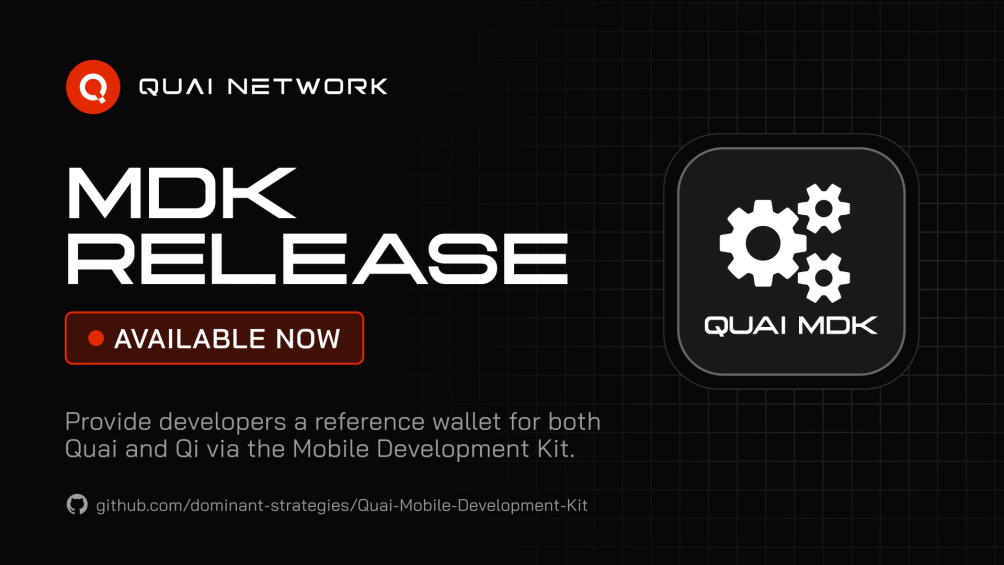
We’re excited to unveil the beta version of the Quai MDK, a streamlined toolkit crafted to accelerate and simplify mobile app development within the Quai Network ecosystem. With this powerful MDK, developers gain access to a reference wallet supporting both Quai and Qi tokens, providing an intuitive path for building on and enhancing the Quai Network.
The Quai MDK is designed to empower developers with a robust, open-source reference wallet for Quai and Qi, setting a flexible foundation for creating dApps, expanding features, and driving innovation across the ecosystem.
Unlike conventional SDKs, the Quai MDK is purpose-built for mobile app developers, optimized for mobile use cases to save time on state management and storage. By removing web3 complexities, it brings a development experience closer to web2.
For mobile developers facing challenges around wallet integration and state management, the MDK offers a plug-and-play wallet solution with a mobile-optimized interface, transforming dApp development into a simplified process.
With the Quai MDK, we’re looking forward to the next wave of mobile-driven innovations on Quai. Start building today and help shape the future of decentralized finance on mobile!
Key Features
1. Quai and Qi Wallet Creation – Create and manage wallets for both Quai and Qi.
2. Seamless Transactions – Send transactions in Quai and Qi.
3. Contact Management – Organize contacts within the app for streamlined transactions.
4. Universal QR Code Integration – Codify QR codes across the Quai ecosystem for consistency and interoperability.
Benefits
1. Beyond Documentation – The MDK goes beyond standard documentation, providing a fully functional example codebase that helps developers understand and leverage the wallet implementation quickly.
2. Boilerplate Design – Offers a ready-made, mobile-focused template for creating apps that support Quai and Qi payments, allowing developers to focus on enhancing user experience rather than foundational coding.
3. Cross-App Wallet Portability – Serialize and deserialize QR codes for seamless wallet import/export across Quai dApps.
4. Optimized Wallet – A reference wallet, rigorously tested to set the performance benchmark for the ecosystem.
5. Reduced Development Time – Cuts wallet and payment integration from 3-4 months to just 2 weeks, lowering barriers for developers.
